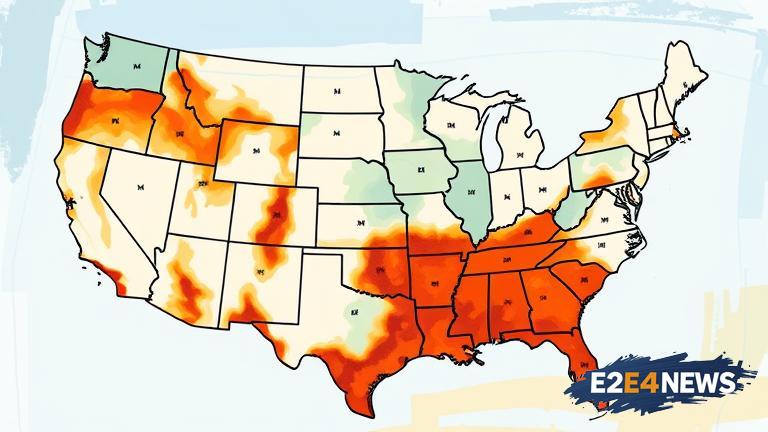The increasing frequency and severity of wildfires in the US have sparked concerns about the potential impact on drinking water quality. Wildfires can contaminate water sources by releasing harmful chemicals and pollutants into the environment, which can then enter water treatment systems. This can lead to a range of problems, including the presence of toxic substances, increased levels of sediment and debris, and disruptions to water treatment processes. Experts warn that the effects of wildfires on drinking water quality can be long-lasting, with some communities experiencing problems for months or even years after a fire. The main concern is the release of volatile organic compounds (VOCs) and other hazardous chemicals, which can be harmful to human health. VOCs can come from a variety of sources, including burning vegetation, buildings, and other materials. These chemicals can then enter water sources, such as rivers, lakes, and reservoirs, and eventually make their way into drinking water systems. Water treatment plants are designed to remove many types of contaminants, but they may not be equipped to handle the unique challenges posed by wildfires. In some cases, water treatment systems may need to be upgraded or modified to effectively remove wildfire-related contaminants. The impact of wildfires on drinking water quality is not limited to the immediate area surrounding the fire. Water sources can be affected by runoff from burned areas, which can carry pollutants and sediment into nearby waterways. This can lead to a range of problems, including increased levels of turbidity, pH changes, and the presence of harmful bacteria and other microorganisms. Communities affected by wildfires may need to take steps to protect their drinking water sources, such as implementing additional treatment measures or issuing boil water advisories. In some cases, alternative water sources may need to be found, such as bottled water or water from other communities. The economic impact of wildfires on drinking water quality can be significant, with costs associated with upgrading water treatment systems, implementing additional treatment measures, and providing alternative water sources. The environmental impact of wildfires on drinking water quality is also a concern, with the potential for long-term damage to ecosystems and water sources. Experts recommend that communities take a proactive approach to protecting their drinking water sources, including implementing measures to prevent wildfires, such as prescribed burning and forest thinning. Additionally, communities can take steps to prepare for the potential impact of wildfires on drinking water quality, such as developing emergency response plans and conducting regular water quality testing. The US Environmental Protection Agency (EPA) has issued guidelines for communities affected by wildfires, including recommendations for water quality testing and treatment. The EPA also provides funding and technical assistance to communities affected by wildfires, to help them address the impact on drinking water quality. Overall, the impact of wildfires on drinking water quality is a significant concern, with the potential for long-term effects on human health and the environment. Communities must take a proactive approach to protecting their drinking water sources, and be prepared to respond to the potential impact of wildfires. The situation is being closely monitored by experts, who are working to develop new strategies for mitigating the effects of wildfires on drinking water quality. Researchers are also studying the impact of wildfires on drinking water quality, to better understand the risks and develop effective solutions. As the frequency and severity of wildfires continue to increase, it is essential that communities take steps to protect their drinking water sources and prepare for the potential impact of these events. By taking a proactive approach, communities can help to ensure the safety and quality of their drinking water, even in the face of wildfires and other disasters. The impact of wildfires on drinking water quality is a complex issue, requiring a comprehensive and coordinated response. Experts recommend that communities work together to develop strategies for mitigating the effects of wildfires, and to share knowledge and resources to address this critical issue.
